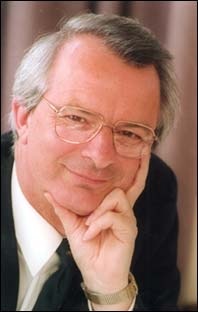Discipline
I was ferreting about looking for information about the demise of the UK e-university. It is a horrific story of extraordinary salaries and bonuses for an essentially failed enterprise - a stark contrast to our Ultraversity Project, which has established a fully online degree scheme which has had no investment at all, and if it fails will not discomfort the taxpayer nor bring financial rewards to its staff!
I came across the Select Committee on Education and Skills Minutes of Evidence where Sir Howard Newby is questioned, and I was hooked.
-
"The first lesson I would learn is that the development of e-learning needs to be learner-centred rather than technology driven. We need to know a lot more about the needs of learners and, if I may get a little bit technical here, the form of pedagogy that e-learning involves, which, as we can now begin to see, is quite different to that of more conventional ‘chalk-and-talk’ "
I would agree, but this seems so necessary for all learning, including the ubiquitous 'blended' learning that Newby goes on to champion. We have been spending the last three years answering this kind of question and have the graduates to prove it.
I went on to read the separate interview with Newby about the concerns for the future of important university disciplines, in the Select Committee on Science and Technology Minutes of Evidence.
-
"One part of the issue there is that we find that the biological sciences and medicine attract female students in very large numbers, which on the whole, alas, physics, chemistry, engineering and mathematics do not. One country that has tried to address this problem with some success has been Canada. It has reorganised its school curriculum to be more attractive to girls at the age of 13-14 when they are choosing when to specialise. There may be some lessons we could learn there in this country.
-
Q191 Chairman: How could you do that, Howard?
-
Sir Howard Newby: They dropped the disciplinary emphasis. They did not teach separate maths, physics, chemistry and biology courses, but rather taught around themed courses related to problems of interest to students. They taught—
-
Q192 Chairman: Like climate change.
-
Sir Howard Newby: Climate change, the human body and things like that.
-
Q193 Chairman: Real issues that are valuable in their lives. How strange! Why has that not happened here, then?
-
Sir Howard Newby: Because, Chairman, if I may say so, the way in which the curriculum is still organised is locked into a rather nineteenth century conception of what the disciplines are all about."
In the Ultraversity Project, we have dispensed with disciplines in our pedagogy for undergraduates, although they remain important in terms of community of practice, research and authority.
Ricardo’s Blagado
Monday, 18 September 2006
